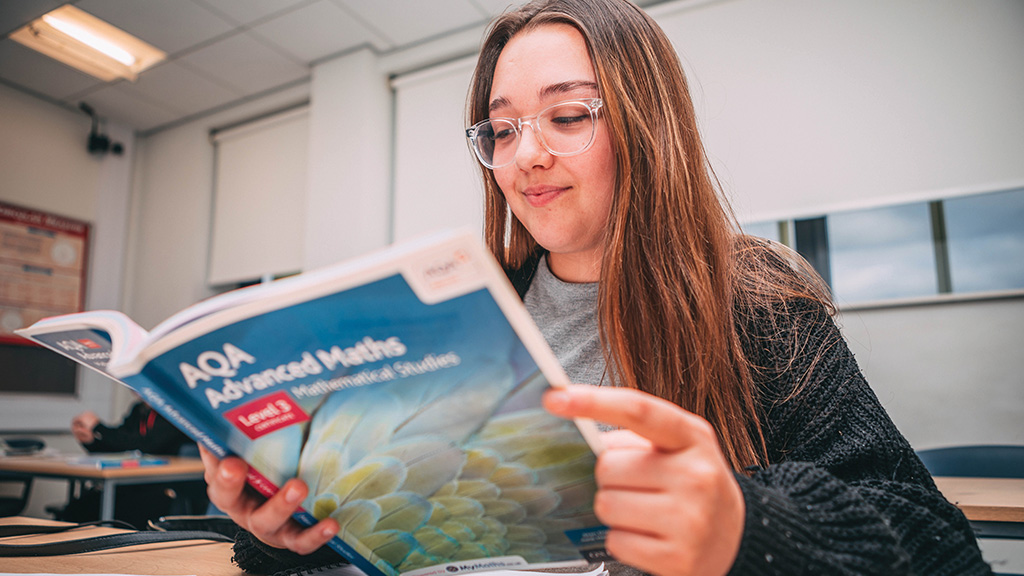Course Overview
If you enjoy the challenge of problem-solving or want to develop your mathematical skills to support other subjects, this course is ideal for you.A qualification in Mathematics provides evidence of good problem-solving skills and the ability to analyse data.
This facilitating subject is highly valued by employers and is often a requirement for Higher Education courses in Sciences and Engineering.
What You Will Study
This qualification consists of pure Maths alongside both mechanics and statistics. These will all be examined at the end of the two years but there will be regular developmental assessments during the course to allow you to practise and improve your approach. If you prefer using and applying Maths, you may wish to consider the one-year Core Maths qualification instead.- How You Will Be Assessed
100% Exam
- Entry Requirements
5 GCSEs at Grade 9-4 including English Language
PLUS
Grade 6 in Maths
- Further Study
Many of our students progress onto a university degree in Maths, Science, Engineering, Finance, or ICT.
Potential Careers:- Accountant
- Financial Adviser
- Data Analyst
- Teacher
- Stockbroker
- Trade Analyst




